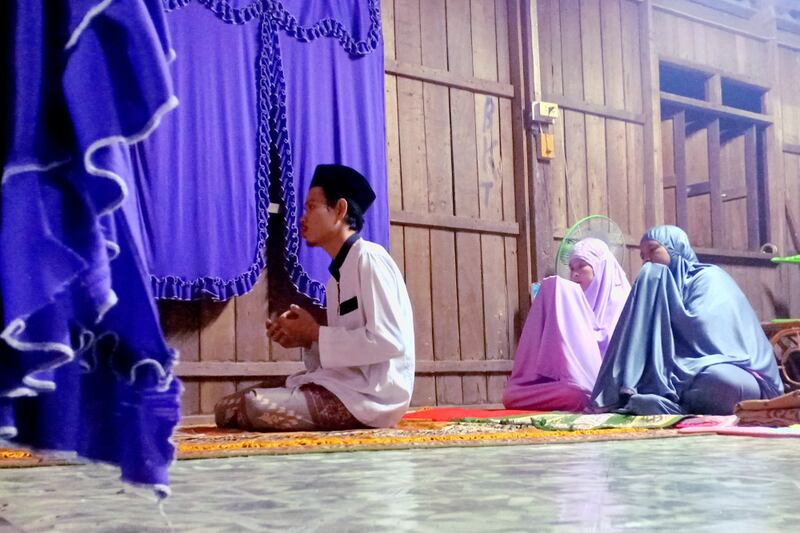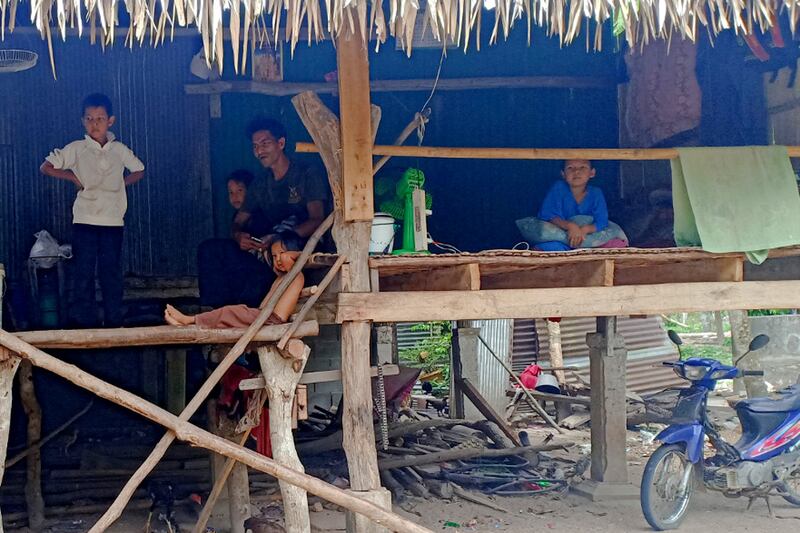Some families in Thailand’s mostly Muslim Deep South region have found an unexpected silver lining in observing Ramadan under the COVID-19 lockdown. For others, movement restrictions put in place to curb the pandemic have turned the fasting month into a time of outright hunger.
Thailand lifted restrictions on some businesses and activities this week, but all mosques remained shut and public gatherings banned in Yala, Pattani and Narathiwat provinces, which comprise the Deep South, along with a handful of districts in neighboring Songkhla.
Infections in the border region accounted for more than 12 percent of the 2,988 cases nationwide, although the 2.4 million residents of the mostly Muslim, Malay-speaking region comprise just 3.5 percent of Thailand’s population.
With his work as an electrician in Yala province on hold, Makoree Abu, 28, was observing the fasting month at his parents’ home in Pattani – something he has rarely done.
“It’s a mandatory family gathering that binds our family ties,” he said. “There is a good opportunity in all crises. It’s not all terrible.”
In addition to helping his mother around the house, Makoree – who graduated from an Islamic school – has been leading the family Tarawih prayer each evening. The prayer is a special one that Muslim faithful perform at night during Ramadan.
“The atmosphere is not the same as when we prayed at mosque, but by having activities at home, I feel the warmth,” said Makoree’s sister-in-law, Suena Adae, 39, who with her husband came from their home in Yala to join the family. “Luckily, my brother-in-law is able to lead us in the Tarawih prayer.”
Suena and her husband, who taps rubber and works petty jobs to make a living, are also out of work for now.
“The entire world population regardless of faith, gender or age, is facing the same destiny. We have to increase our patience during this Ramadan,” Suena told BenarNews.

From Joy to Tears
Fadia Sulong and her friends would usually be in school during Ramadan, or playing to pass the fasting hours. But this Ramadan is different for the 13-year-old, who lost her father in a suspected act of insurgent violence when she was an infant. School has been postponed until July, and the youngsters cannot go outside.
“I want to make this year’s Ramadan worthier than the previous years, for me and for others, especially during this COVID time,” Fadia told BenarNews at her mother’s home in Yaha, a district of Yala. “We spend some 30 minutes on the Quran per day and intend to do it until Ramadan ends.
“Whoever succeeds with certain verses, teaches the others to read. Sometimes we all can read and we read them together out loud. It’s joyful,” Fadia told BenarNews. “We gain more merit than just playing like we used to do.”

But for Sa-ari Baharo, a 45-year-old widower with five children, this year’s Ramadan has been marked by deepening hardship. He is one of some seven million Thais unable to work due to the pandemic.
Sa-ari lost his wife 9 months ago as she was delivering their fifth child. The family lives in a village under lockdown because COVID-19 cases have been detected there.
“I do anything for hire to make money to feed my children. But COVID lends me no [jobs],” Sa-Ari told BenarNews at his thatch-roofed house in Yaha district. “We cannot get out of the village to find a job elsewhere either. That adds to my hardship.”
Although the government said it was handing out 15,000 baht (U.S. $463) in relief cash over three months to some 16 million citizens affected by COVID-19, Sa-ari said he had received a text message stating that he did not qualify.
“I comfort my children when we don’t have food to eat. The best we could have is boiled rice. My children cry because they are hungry,” Sa-Ari said. “No job, no money, no food.”
